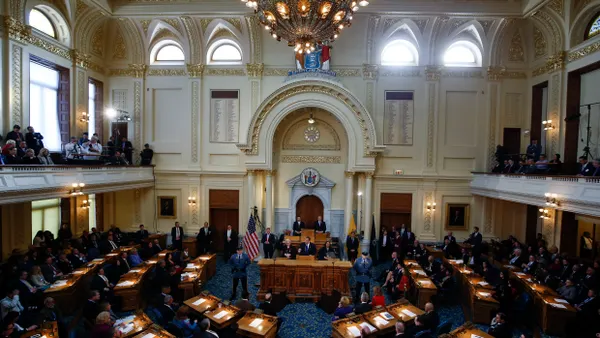How thoroughly and transparently you forecast cash flow and other company performance metrics over the next several months can play a role in whether your outside auditor issues a going-concern opinion, an action that can have consequences for your company, audit specialists say.
"We're seeing in real time that going-concern opinions are becoming an issue that companies will have to navigate pretty delicately," Eric Hines, a partner with global advisory firm StoneTurn, told CFO Dive.
Audit firms are likely to steer towards the most conservative disclosure possible if they see your company facing difficulties, Hines said. That could mean adding a going-concern emphasis of matter paragraph to their audit opinion. That's a negative for any company, but it can also have a material impact as well. In some cases, it can trigger a default in one of your debt covenants.
"I would pay close attention to what terms in a debt agreement could trigger any sort of default that may be quantitative or they could be qualitative in nature," said Hines. "Some of these things could have to do with material adverse changes or unforeseen circumstances" such as a going-concern opinion.
"If I were a CFO, I'd be looking closely at those debt agreements to see if there are areas that are obviously going to be more prone to risk in the current environment," he said.
Going-concern opinions remain rare
For the last several years, going-concern opinions have been trending down, but audit specialists say they expect to see an uptick in them because of the downturn, although that hasn't shown up in the data.
"By trying to count the going-concerns, we're just not getting a real indication of the picture yet," Don Whalen, general counsel and director of research at Audit Analytics, told The Wall Street Journal. "We're in the middle of it."

Some 20 companies have had the opinions issued so far this year, most recently arcade chain Dave & Buster's Entertainment, which temporarily closed all of its 137 locations in April.
Hines pointed to an uptick in the opinions after the 2008 financial crisis. "You saw a lot more companies get into an area where they had a going-concern modification to an audit opinion," he said.
Relationships matter
For CFOs, whether or not one of those opinions is issued can come down to the relationship you and your audit committee have with your auditor, and how thoroughly and transparently you undertake your modeling of future performance.
"There's typically some back and forth [between the CFO and audit committee and the auditors]," he said. "The company would put forward its own views. The auditor's job is to appropriately challenge that, and where there's a disagreement, there is a physical back and forth, because part of the responsibility of management is to put forward plans as to how they're going to deal with the financial uncertainty going forward."
On the audit side, Hines said, "they'll be looking to pressure test that and check reasonableness of the assumptions and assess how likely those forecasts and budgets and financial plans are to be successful going forward. So, there is a bit of tension, but open communication and doing a deep dive analysis inside of a company is obviously always a good start."
You also want to be prepared to discuss, with some real options on the table, how you will manage the risk of financial uncertainty over the next year, he said.
Look at debt covenants
Hines also recommends taking a close look at your debt covenants to identify language that could deem a going-concern opinion a default event.
"Some of those terms can be somewhat subject to interpretation," he said.
Given the nuances in some of the language, Hines suggested CFOs focus on how they’re interpreting some of the financial metrics that are measured under their debt covenants, what kind of allowable exclusions there are in terms of non-recurring costs and what adjustments might impact some of their covenants.
"That's obviously a hot topic given we've got the COVID-19 issues," he said. "We're keeping a close eye on [these debt covenants] to see if there’s any pushback or disputes between borrowers and lenders."











